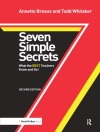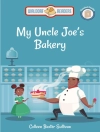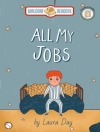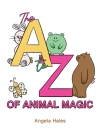` Improving Literacy at KS2 and KS3 is all about primary-secondary transfer, seen mostly through the eyes of secondary teachers, but with some interesting contributions from middle-school staff who know the territory well. This book sees the NLS′s influence on primary practice as generally benign, but takes a more jaundiced view of the implications for secondary teaching, especially in its central chapter ‘Evidence from experienced practitioners’. There are, however, many useful suggestions for reshaping and adapting parts of the strategy, including chapters on classroom literacy and everyday life and literacy and drama which consider ways of relating learning to the wider culture beyond school, including screen-based literacy. There is also a review of the language-across-the-curriculum movement and a chapter on subject literacies which has left me with an abiding admiration for geography teachers as lone voices of dissent′ — Sue Palmer, TES Teacher
This book will to help students and practising teachers to understand the issues surrounding literacy, the place of transition in pupils′ lives, and to feel confident in handling The National Literacy Strategy.
The book focuses on the crucial period when children complete primary schooling and begin in secondary schools. It examines the issue of transition from one phase to the other and specifically, the nature of literacy at this period. The authors contrast the `whole school′ approach of primaries to the very subject-specific nature of secondary teaching.
The authors set the NLS in perspective, reviewing earlier movements such as Language across the Curriculum and the NLS itself. They offer a critique of the strategy and outline its strengths and weaknesses. The book sets out evidence of the way schools are reacting to the NLS, and what classroom teachers and their pupils think. Its coverage is comprehensive and includes focus on primary, secondary and middle schools, the teaching of literacy and English, the role of ICT, as well as important areas such as media education, drama and modern foreign languages.
This book will be useful to education students and to practicing teachers in primary and secondary schools.
Содержание
Introduction — Andrew Goodwyn
Literacy in Transition — Andrew Goodwyn and Kate Findlay
Secondary Schools and the National Literacy Strategy — Andrew Goodwyn and Kate Findlay
Subject Literacies — Kate Findlay
Literacy at Key Stage 3 — Michael Lockwood
Evidence from Experienced Practitioners — Winston Brookes
Classroom Literacy and Everyday Life — George Hunt
Literacy and Drama — Lionel Warner
Literacy and Modern Foreign Languages — Cynthia Martin
Literacy and Subject Knowledge — Margaret Perkins
Об авторе
Andrew Goodwyn is now emeritus professor of education at the University of Reading with longstanding experience of working as the Head of Institute of Education (University of Reading). He is an educationalist who has published extensively on English and English teaching. His expertise spans theory and practice of English teaching, literacy, media education, the development of expertise, expert teachers, policy and practice—national and international, and information and communications technology (ICT) for improving teaching and learning inclusive of digital literacies.












